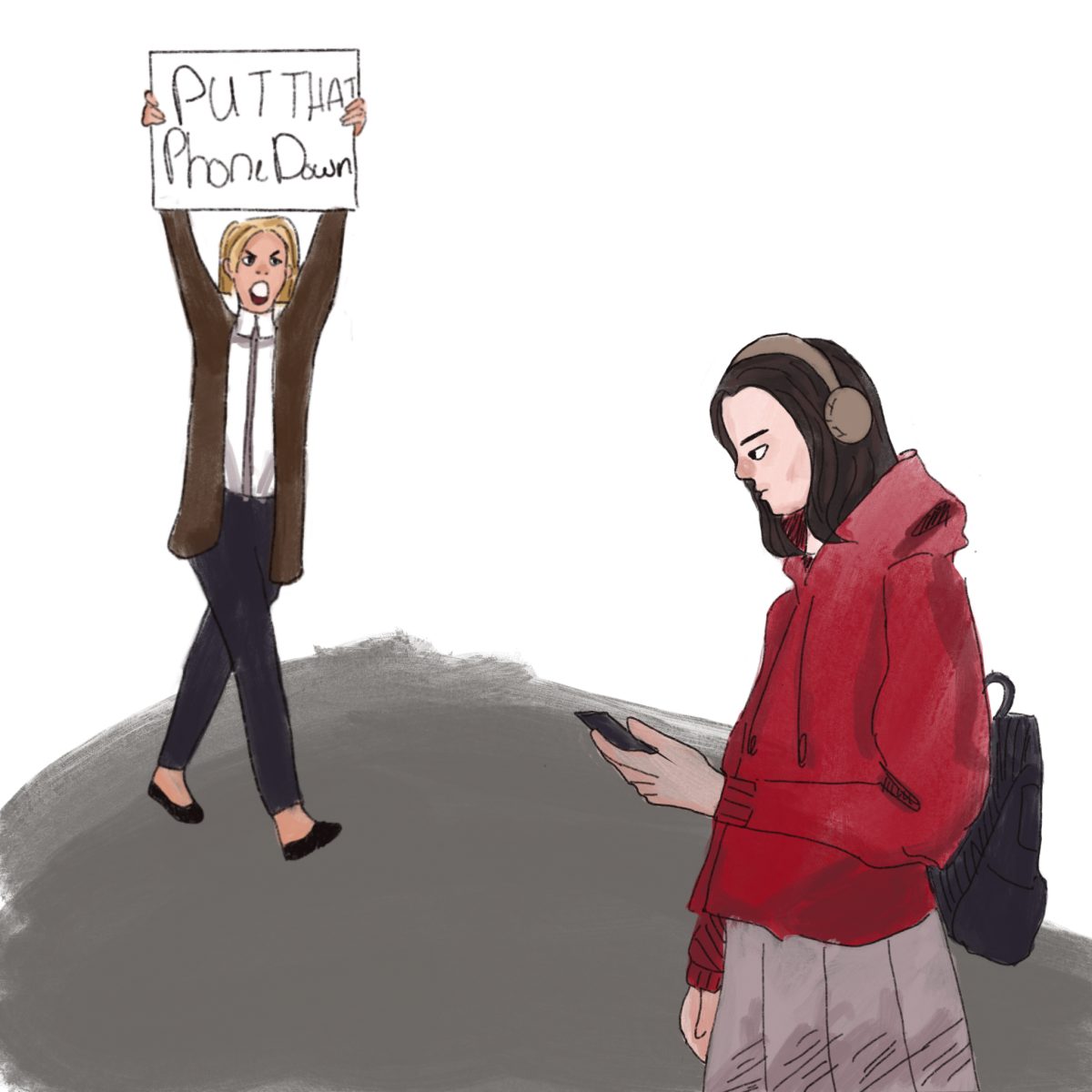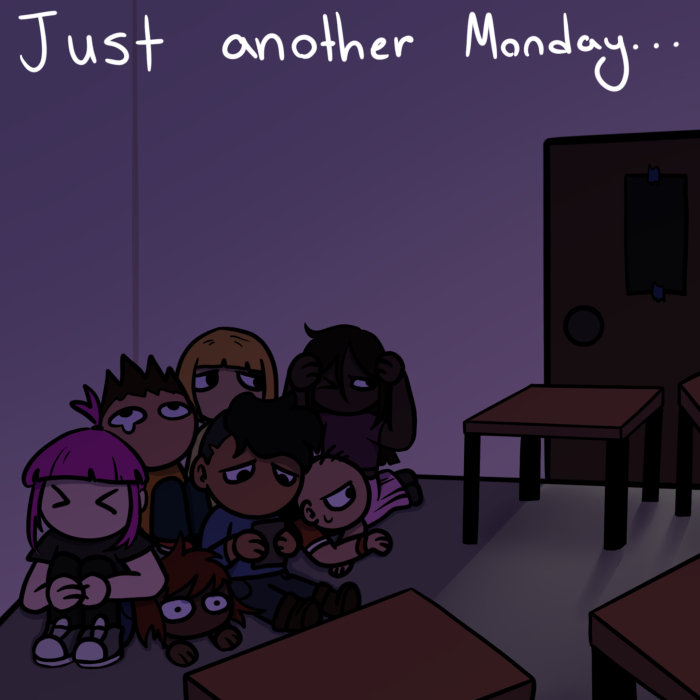HISD’s cellphone policy prohibits cellphone use in all HISD schools during the academic day, including passing periods.
The policy, which was updated on Aug. 28, 2023, reads: “Student use of phones during the academic day disrupts learning and instruction, fuels disputes between students, and undermines the culture we are working to create in all HISD campuses.” Although cellphones have been in the Student Code of Conduct for a “long time” according to Assistant Principal Rachel Burgan, students are seeing an increased enforcement of these rules in our hallways and classrooms.
HISD is not entirely wrong. However, the district has fallen short in its attempt to apply a general rule to HISD’s 37 high schools. Cellphone usage should instead be determined on a school-by-school basis.
Districts have taken different approaches to the flood of phones in the classroom. And HISD is not the only district enforcing such policies, with nearby districts like Aldine ISD and Spring ISD prohibiting phone usage entirely. This new cellphone policy isn’t an attack on us, but rather a way to support students in creating a distraction-free learning environment and teachers having control of the classroom.
It’s reactive.
HISD saw a problem, so it came up with a solution.
But this solution isn’t applicable to everyone.
In an article by “The Upstream,” Carnegie Vanguard High School’s student-run news site, 19.2% of the 26 Carnegie teachers polled agreed with the statement, “I trust my students to self-regulate their cellphone usage without a ban” and 34.6% felt neutral about the statement. The main concerns expressed by Carnegie teachers were that while regulation of phones is needed, HISD’s policy is too broad of an approach to their students’ needs.
Madison High School’s principal Edgar Contreras, on the other hand, felt his school needed even stricter regulations after fights broke out on campus over phones, requiring students to turn in their phones at the main office as they enter the school and prohibiting phone usage throughout the school day according to a Feb. 5 KHOU story.
As outlined in the policy, teachers are expected to confiscate any phones they see, even from students they don’t know. And at the largest school in the district with over 3,000 students and an 18:1 student-teacher ratio, the policy just isn’t enforceable here.
AP Environmental Science teacher Lizbeth Richter, a self-proclaimed “rule follower,” has been “very vocal” in telling students to put away their phones. But to her, these actions yield no results.
“The idea is that they’ll get tired of being told and they’ll actually do it,” Richer said when referencing monitoring the hallways. “But that doesn’t work. Most of the time, people walk by with their headphones on or their phone out, and they just completely ignore the teachers that say anything about it.”
So what is best for our school? We are one of the top schools in the district, with an ‘A’ ranking on Niche and U.S. News and 59% of its students participating in Advanced Placement courses. We produce students who innovate, create and thrive in an environment where they can take more authority in their education. So instead of banning cellphones, let’s instead look at how we can embrace them as the mini-computers that they are.
Our phones can be an extension of our learning tools. We can take photos of notes or the results of a science experiment, scan QR codes and look up a quick definition or question while completing a collaborative assignment. We could actually check the Remind messages our teachers are encouraged to send to communicate with us.
Photography and graphic design students use phone cameras regularly for assignments. We are a language magnet school with magnet students learning their second and third languages. There are apps like Google Translate and iTranslate that can translate conversations live.
The school-provided laptops do not have all these features nor are they always reliable. And they do not belong to us. When we get out for the summer and eventually graduate, it’ll be our phones that are our primary form of technology.
Even beyond the classroom, phones allow us to stay involved in our extracurriculars. With our 149 clubs, club leaders use phones to contact each other, set up meetings and make sure everything is prepared for the daily events during Cardinal Hour. As journalists, Three Penny Press members use our phones for everything. To record interviews, write notes on a breaking news event, take quick photos when a camera isn’t available or even just let our staff know that we’re covering an upcoming event.
We recognize that phones weren’t always an essential part of life, but they are now, just like cars, microwaves and refrigerators. The world isn’t the same as it was 20 years ago. We have gone through a pandemic that forced technology to become the only way for us to connect and learn, and it has irreversibly changed our culture, especially among youth.
So instead of shying away from phones, let’s embrace them on our campus. We believe our school community would benefit from a more lenient and academic-friendly cellphone policy that would further support us in our learning.






